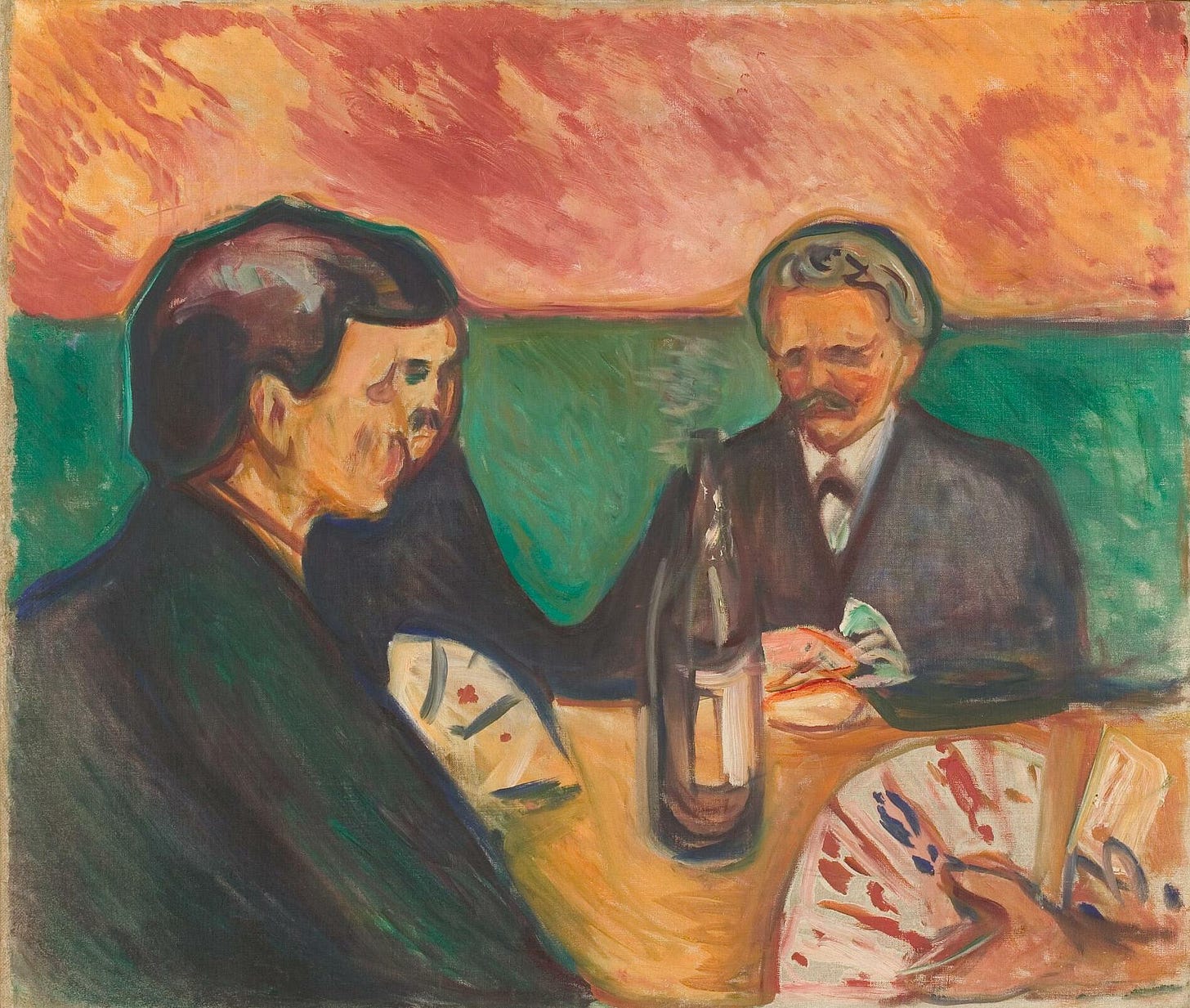The Ruined Man
A story about a man and his community.
The ruined man appeared in the doorway of our little parlor just yesterday, the big hall light behind him, his limp shadow cast on one of the red lace curtains we’ve strung up to add a little warmth to the walls. He had brought the usual sort of gifts: a wooden ball, a wilted flower, a package of damp cigarettes. We all rolled our eyes. Even the children have grown tired of him by now. Nonetheless, he went around to each of us, holding out his trinkets, wearing the usual beseeching expression on his long, pitted face. Ms. Plymouth didn’t even look up from her knitting. Mr. Sunset dignified him with a small shooing motion, his face averted, his eyes closed; he has always been overly kind. The children threatened him with a sharpened stick. When, finally, he came around to me, I simply cleared my throat.
The ruined man had once been a respected member of our community, but now he’s just a shape. He has no one to blame for his position but himself. He’s let himself be ruined. Minute by minute, hour by hour, year by year everything respectable in him has been gradually worn away. His respectable career withered into a disreputable fixation. His respectable clothes decayed into shameful rags. His elegant speech degenerated into little more than animal grunts and whimpers. We watched it all happen, first with dismay, and later with scorn. We watched as everything about him fell to ruin, steadily, despite his every effort, until finally he had no efforts left, and nothing to his name but wreckage. We would have gladly told this to any stranger that inquired, but no one ever has; strangers do not come to our parlor anymore. The outer door was boarded up long ago, longer than any of us care to remember.
The ruined man had held such promise once. It had seemed he would really make something of himself. We can only shake our heads. What will become of him? Nothing good, I’m sure.


